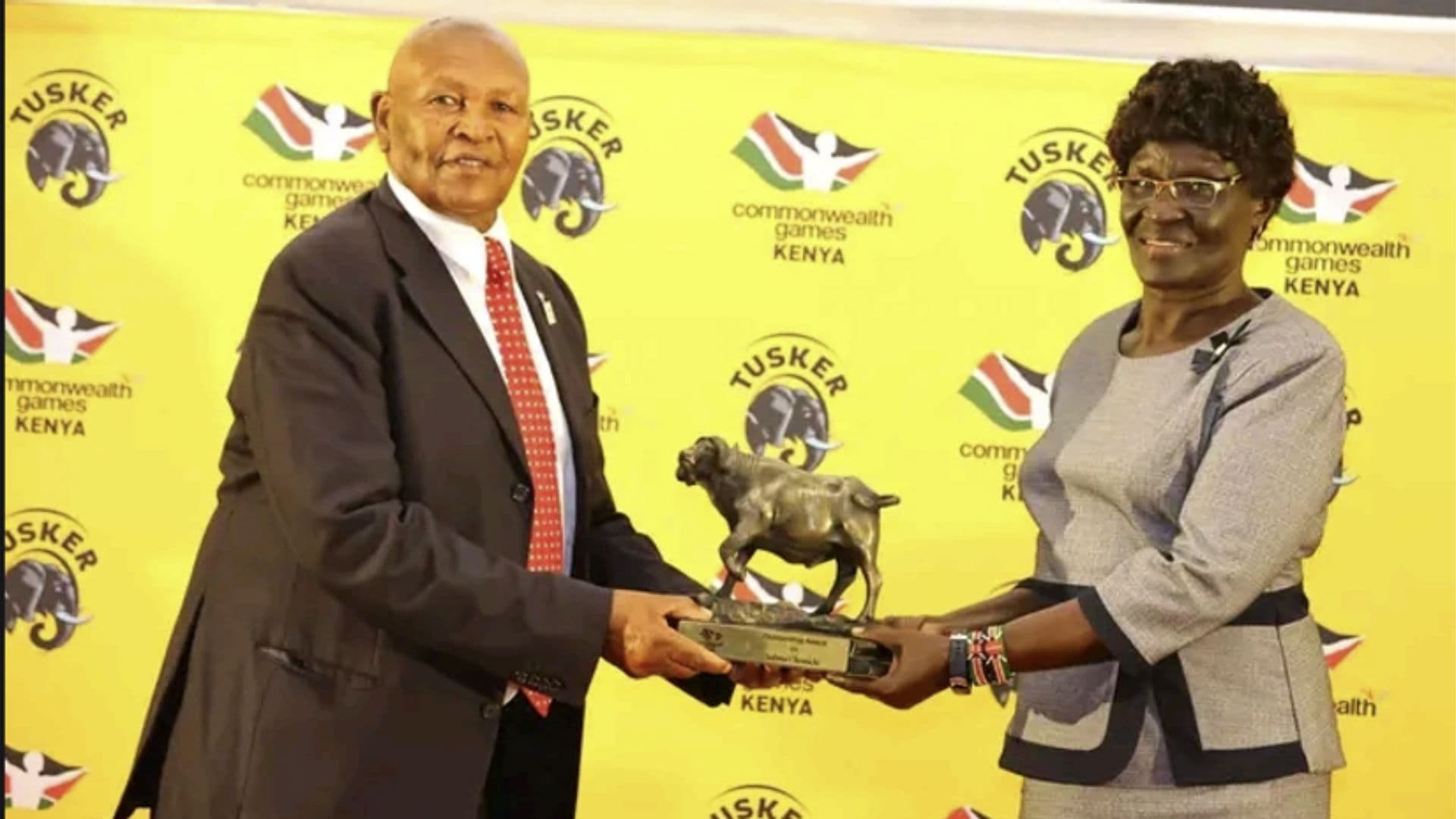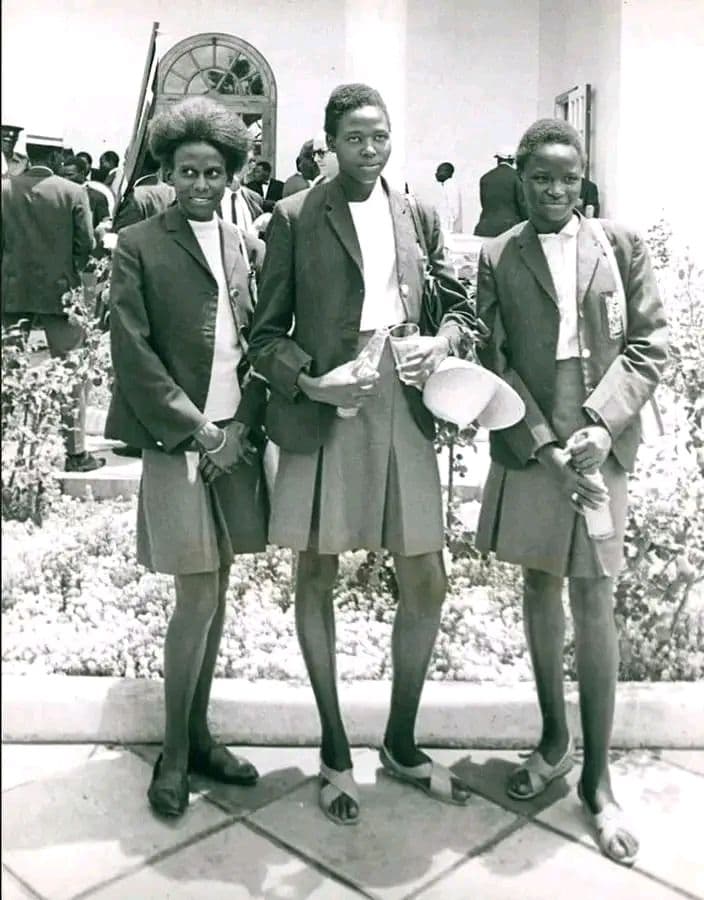Olympics
Tecla Chemabwai Sang: The Story of First Woman to Represent Kenya in the Olympics
Tecla Chemabwai Sang, Kenya's first female Olympian, broke barriers in sports. From running in the wilderness to reaching the world stage, her legacy inspires future generations in athletics and education.

Image Credits: NOCK Media
When people hear of the first woman to represent Kenya in the Olympics, lots of questions are asked, is she alive, where is she, what does she do, how does she look?
SportsBoom embarked on a journey to look for this history-maker, who challenged all the obstacles en route to glory and broke cultural norms to rightfully win everything that is there to win.
Early Life and Roots
Tecla Chemabwai Sang was born in 1956 in Chepkunyuk, Nandi County. Her resilience began taking shape during her school days when she ran over 22 kilometers daily.
She recalls one memorable night when she mistook the full moon for daylight, ran to school through wilderness filled with wild animals, and waited alone until morning in a locked school washroom. This was one of the experiences that forged her perseverance.
“When I reached the school, there was no one. So, I went to the toilet because the classrooms were locked. I stood there for a very long time, I think I reached the school at midnight, and I stayed in the toilet until morning when people came. You can now understand how resilience was built,” she explained.
Starting as a footballer, she moved through volleyball and netball before focusing on athletics, her true calling.
Trailblazing Path to the Olympics
Kenya participated in the Olympics for her second time in 1968, just in time for Tecla’s international debut. There were ‘qualifying standards’ back then in 1965, and athletes were gauged using the East Africa Championships.
Tecla qualified alongside two other ladies who were Lydia Stevens and Elizabeth Chesire and they were taken to Thompson Falls for training before the major event. To Tecla, all that mattered to her was boarding a plane, since she had only seen it over her head previously.
Back then, minors were not given passports, and the state had to lie that she was 18, not 13 for her to get a visa to fly to Mexico for the 1968 Olympics. This might explain why people think she is 71 years old now, but she is only 68.
In Mexico, she was unfortunately eliminated as she came in at position four, but she was young and inexperienced, so the loss did not matter to her as her dream was to board an airplane.
In 1972 however, she was experienced enough as she was in high school, and under the guidance of games teachers. Despite being eliminated again in Munich the same year, Tecla had run the best Kenyan time of 53:6 at the age of 17 years.

Image Credits: NOCK Media
She won all the All-African Games that she participated in. In 1976 when she was in Australia, Tecla met a lady coach who saw her potential as an athlete. The coach’s name was Dorothy Richie.
Richie advised her to shift to middle-distance running since there were many sprinters in the US, and Tecla would not get a chance as a sprinter.
She would then qualify for the 1976 Olympics in Monroe, but Kenya pulled out due to apartheid in South Africa which saw all African countries pull out of the competitions to support South Africa.
In 1978, she was at the peak of her career. She flew back to Kenya for the Commonwealth Games, and for the first time, she was on the podium for a major achievement, and the National Anthem was played in her honor.
Professional Life and Legacy
A teacher by profession, Tecla served as Dean of Students at the Rift Valley Institute of Science and Technology, where she mentored athletes, including retired marathon legend Tecla Loroupe.
She later introduced a sports department at Moi University, which thrives today. She retired in 2020, ending a career devoted to shaping sports and education in Kenya.
Reflections on Kenya's Changing Athletic Landscape
Tecla notes a shift in Kenyan sports culture over the years. In her time, champions were celebrated nationwide and paraded across towns in processions akin to political campaigns today.
"We’d be entertained from Mombasa to Nyanza, displayed on land rovers, cheered by the people,” she recalls. Today’s athletes, she feels, don’t receive the same public acclaim, nor the honors once held for national heroes.
She observes that running has become commercialized. Unlike the past, when athletes represented their districts and provinces, today’s athletes often run for financial gain.
She recalls when they would be paid Kshs3 for home games and Kshs7 for away games, which she saved to almost Kshs6,000 which bought her land in Kapsabet.
Improvements in technology, including timekeeping devices and advanced footwear, have also transformed athletics. She explained how the lack of technology left her running to school at midnight, unaware of the time.
She believes these advancements have made training more efficient, allowing athletes to optimize their performances.
Advancing the Future of Athletics
She urges coaches to train the athletes mentally for the game. Citing her example, Tecla says that she lost major international competitions because she was competing with white people, and she saw them as way more qualified than she was.
According to the Olympian, if her coaches had mentally prepared her to overpower the white people, she would have had the best career.
She also calls upon the coaches to identify the inclinations of athletes at a tender age, so as to not only nurture the talents but also the inclinations.
What Does She do Today?
Today, Tecla runs the Chemabwai Sang Educational Center in Eldoret. She’s also active in farming, managing her late husband’s estate, and investing in real estate.
Her husband, Julius Sang, was an Olympian in his own right, winning bronze in the 400m and a relay gold medal in the 1972 Munich Games.

Mary Milanoi is a young Kenyan sports journalist known for her insightful reporting and passionate storytelling.
Her work is characterized by her ability to connect with sportspersons and bring their stories to life, capturing the human element behind the competition.